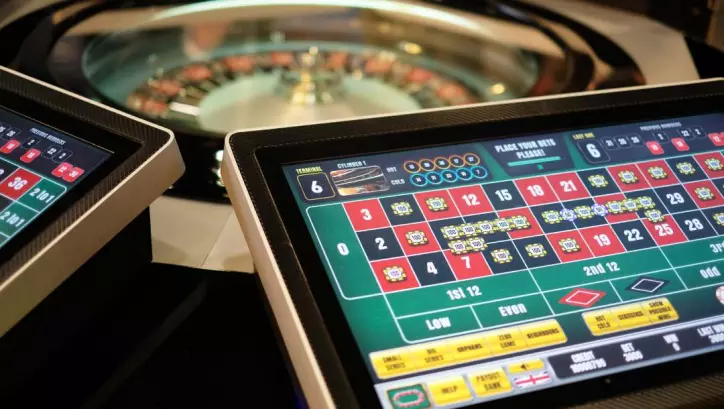When asked to identify the ultimate casino table game, a considerable number of players would promptly point to “roulette.” Following only blackjack in terms of popularity, roulette has essentially maintained its core features since it was first introduced by casinos in Paris, France, during the 18th century.
However, despite its enduring charm, roulette has managed to adapt to the modern era. In addition to the traditional table game with a mechanical wheel operated by a dealer, various electronic versions have emerged. These encompass online roulette, playable on both mobile and desktop devices, as well as electronic roulette games available in physical casinos. Given that these digital roulette variations operate automatically, it’s quite natural for many players to question their integrity. To fully comprehend the answer to this inquiry, one must grasp how electronic roulette functions. Continue reading to gain this understanding.
What Exactly Is Electronic Roulette?

Electronic roulette games offer an alternative for those who enjoy frequenting physical casinos but prefer a departure from the traditional roulette tables. Typically, these automated roulette machines feature a glass-domed roulette wheel. Some are encircled by seats, while others offer a single seat per machine. Instead of the conventional roulette table, you interact with a touch screen displaying the gaming layout and betting options, which mimic those found in standard roulette, encompassing a full array of inside and outside bets.
The gameplay is straightforward. A message prompts you to place your bets on the screen, followed by a betting window period, usually lasting around 90 seconds. Afterward, the wheel spins automatically, and an air blower propels the ball around the wheel. As the wheel slows down, the ball eventually settles in a slot. The machine’s sensors detect the winning number, and payouts are issued for successful bets. You can continue placing bets as long as you wish.
However, a pressing question arises: are electronic roulette games manipulated? Is online roulette rigged? In both cases, the concise response is no. The outcomes in digital roulette are determined in the same manner as all online casino games—via a Random Number Generator (RNG). This algorithm is designed to replicate true chance by randomly selecting from an extensive pool of potential results. The chosen result is then translated onto the wheel using patented equipment that can make slight adjustments to the spin rate.
Ensuring Equitable Play
Electronic roulette provides an incredibly realistic simulation, thanks to the inclusion of a physical wheel and ball. Furthermore, it maintains absolute fairness. This is due to the stringent regulation of all RNG machines, ensuring compliance with industry safety and fair play standards. A casino cannot obtain a license unless its games are certified by the state gaming commission. Consequently, whether you opt for electronic roulette online or engage with an automated physical machine, your gameplay remains secure as long as you access it through a reputable, licensed casino.
Is It Possible to Gain an Advantage with Electronic Roulette Wheels?

Another common query pertains to the feasibility of consistently outsmarting roulette. Once again, the answer is negative, for the same fundamental reason. The utilization of RNGs ensures the random nature of outcomes, making it impossible to predict where the ball will ultimately land or the winning number. What can be anticipated, though, is the casino’s house edge, denoting the profit accrued by the casino over time. The magnitude of the house edge in roulette hinges on whether you’re wagering on a European wheel featuring a solitary zero pocket or an American wheel boasting two zero pockets. It is these zero pockets that contribute to the house edge, standing at 2.70 percent for European roulette and 5.27 percent for American roulette due to the loss of your bet when the ball lands on zero.
So, why engage in roulette at all? The answer lies in a single word: variance. Over time, the house is guaranteed to secure an average victory, but there exists considerable fluctuation from one spin to the next, affording players the occasional opportunity to secure significant wins.
As with all casino games, the wisest approach is to assess the odds and payouts associated with various betting options and craft a strategy accordingly. Outside bets such as those on red, black, even, or odd carry nearly even chances of success and offer a 1:1 payout. In contrast, a straight-up bet possesses a one in 37 likelihood of triumph but delivers a handsome 17:1 payout. Numerous intermediate betting options exist, along with advanced bets that combine diverse number patterns to diversify the risk.
Regardless of the strategy you adopt, it is imperative to exercise responsible play and refrain from staking money that you cannot afford to lose.


